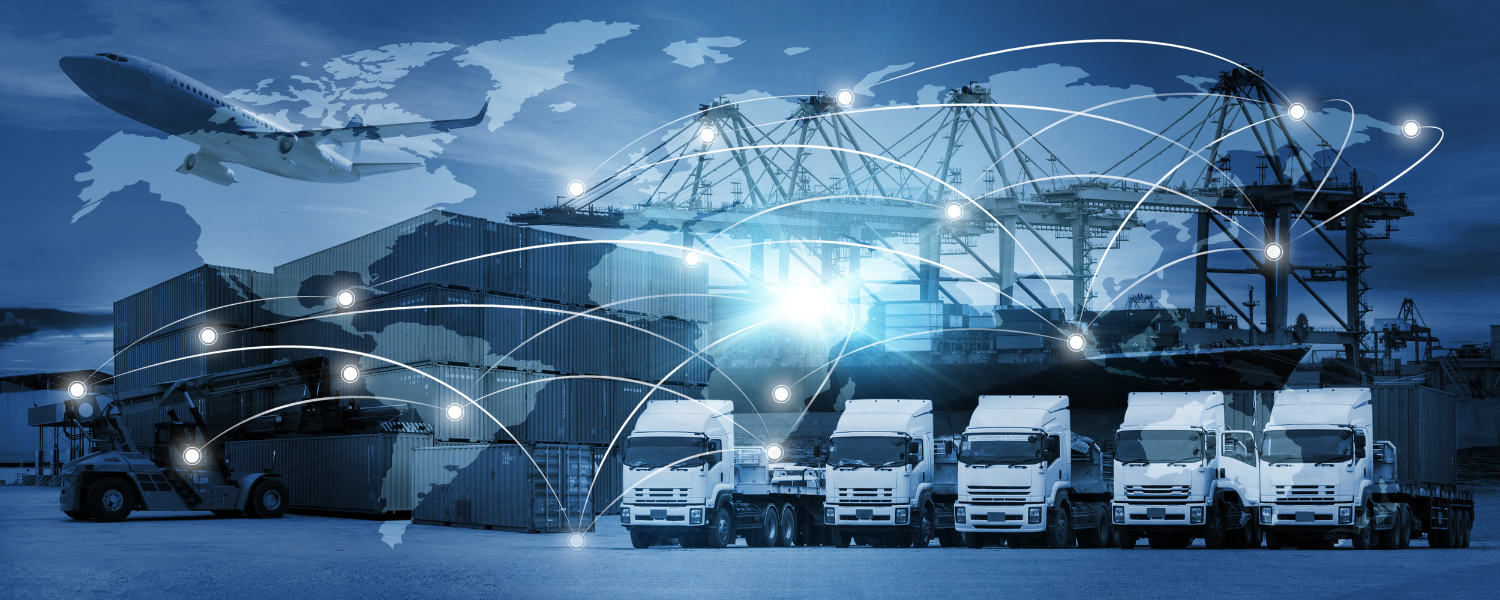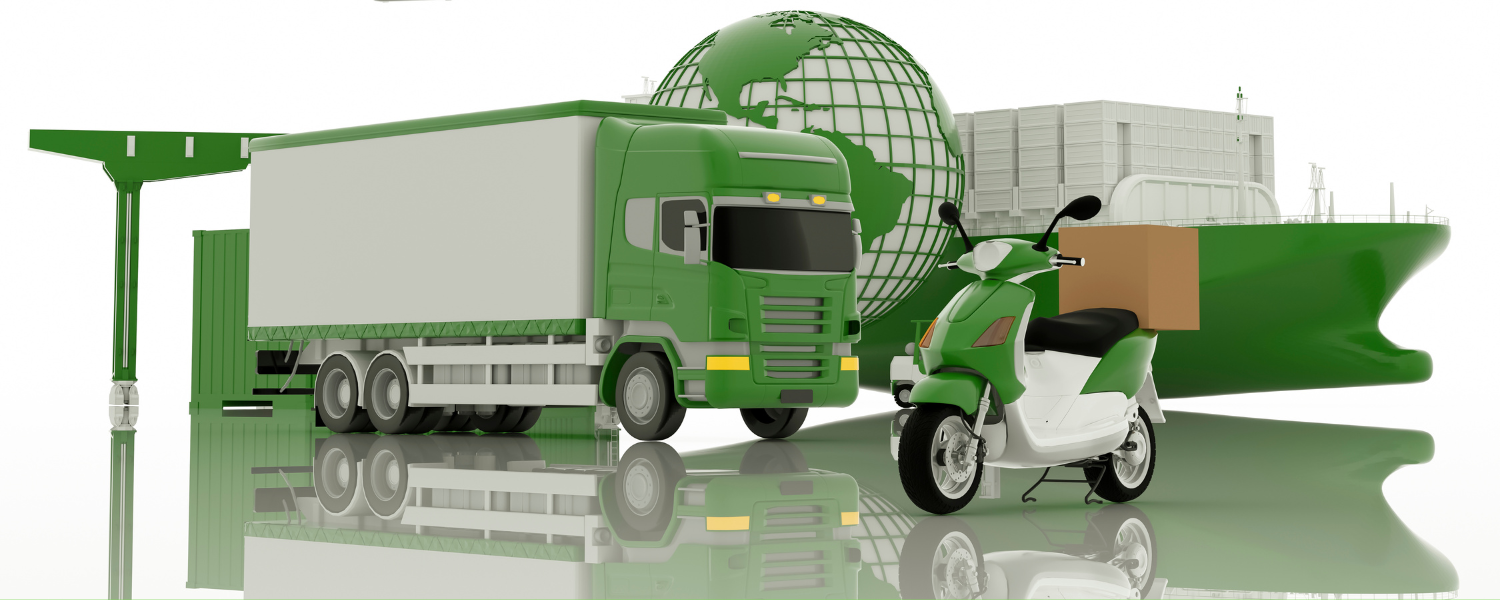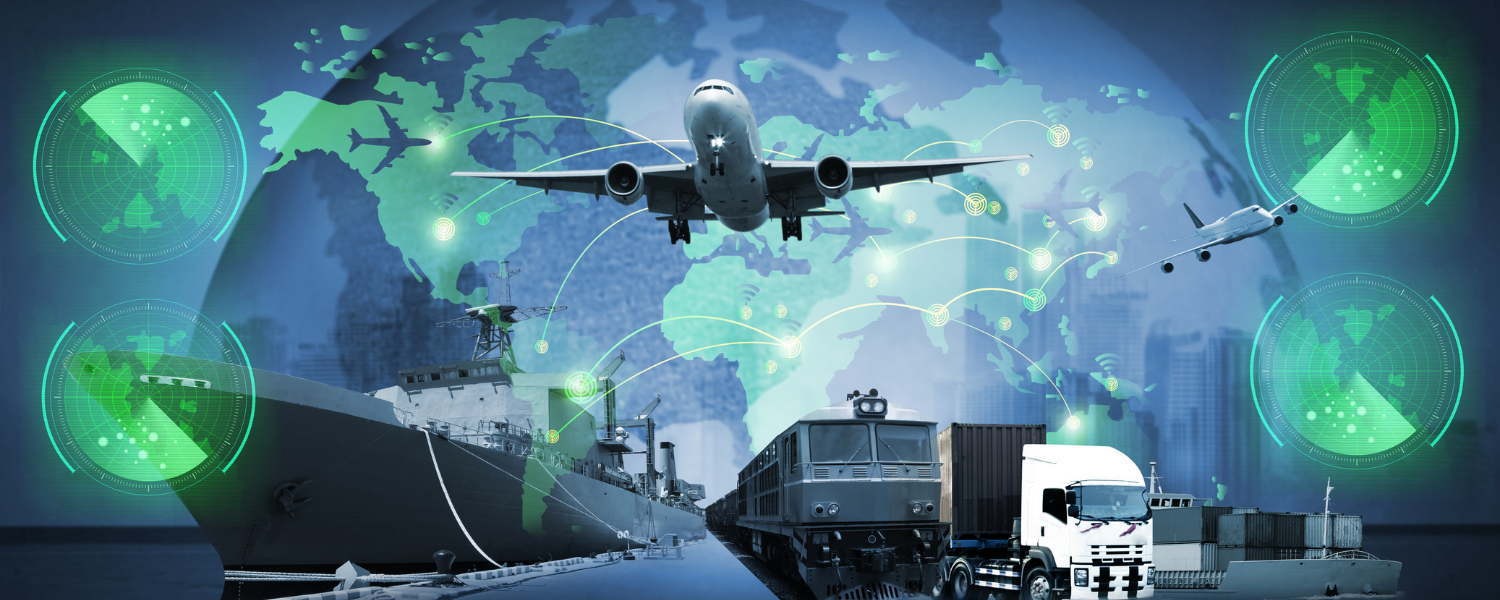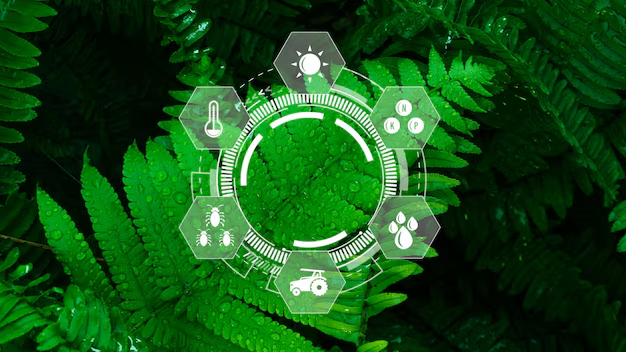Greener Deliveries
5 ways to deliver those 1 day parcels cheap and green

The logistics industry, the backbone of global trade, faces a critical challenge: sustainability. Traditional methods reliant on fossil fuels and inefficient practices leave a heavy carbon footprint. Consumers are demanding change, and regulations are becoming stricter. But there's hope! Digital solutions and technology are emerging as powerful tools for logistics companies to embrace a greener future.
This blog explores how digitalization is transforming the landscape of sustainable logistics, highlighting key trends and how WOCE's technology empowers businesses on this journey.
Digitalization in Logistics: A Game-Changer for Sustainability
The traditional logistics model relies heavily on manual processes, paper-based documentation, and inefficient supply chain management practices. This not only leads to operational inefficiencies but also results in increased resource consumption and environmental degradation. However, the advent of digital technologies has opened up new avenues for the logistics industry to streamline operations, optimize resource utilization, and minimize its environmental impact.
Key Digital Solutions Driving Sustainability in Logistics

1. Real-Time Tracking and Monitoring: Digital tracking technologies such as GPS, RFID, and IoT sensors enable real-time monitoring of shipments throughout the supply chain. By providing visibility into the location, condition, and status of goods, these solutions help optimize routing, minimize delays, and reduce unnecessary emissions associated with inefficient transportation routes.
2. Data Analytics and Predictive Modeling: Advanced data analytics tools leverage big data and machine learning algorithms to analyze historical shipping data, identify patterns, and predict future demand and supply chain disruptions. By optimizing inventory management, route planning, and vehicle utilization, logistics companies can minimize empty miles, reduce fuel consumption, and lower their overall carbon footprint.
3. Smart Warehousing and Inventory Management: Warehouse automation technologies such as robotics, AI-powered inventory management systems, and autonomous vehicles optimize warehouse operations, reduce manual labor, and improve inventory accuracy. By maximizing storage efficiency and minimizing product handling, these solutions help reduce energy consumption, greenhouse gas emissions, and overall environmental impact.
5 ways to deliver those one day parcels cheap and green
Optimize Delivery Routes with AI:
Gone are the days of inefficient delivery routes. Artificial intelligence (AI) can analyze real-time traffic data, weather conditions, and driver availability to dynamically plan the most efficient routes. This minimizes empty miles, reduces fuel consumption, and lowers emissions – all while ensuring fast delivery times.
Leverage Electric Vehicles (EVs) for Urban Deliveries:
Electric vehicles are no longer a futuristic concept. Advancements in battery technology and the growing network of charging stations make EVs a perfect choice for short-haul and inner-city deliveries. They produce zero tailpipe emissions, significantly reducing your carbon footprint and contributing to cleaner air in urban areas.
Embrace Sustainable Packaging Solutions:
Traditional packaging often ends up in landfills, adding to environmental woes. Sustainable alternatives are here to help:
1. Biodegradable Materials: Use plant-based plastics or other biodegradable materials for packaging. This minimizes waste and promotes a circular economy where materials are reused and composted.
2. Reusable Packaging Systems: Implement reusable containers and packaging for specific routes or frequent customers. This not only reduces waste but also streamlines the reverse logistics process for collecting and reusing the containers.
Partner with Local Warehouses for Faster Delivery:
Strategic placement of inventory in smaller, local warehouses closer to your customer base can significantly reduce delivery times. Partnering with local warehousing companies reduces the distance parcels need to travel, minimizing fuel consumption and emissions.
Encourage Eco-Conscious Delivery Options:
Empowering customers to make sustainable choices is key.
Offer options like:
1. Standard Delivery with Extended Timeframe: Provide a discounted, slower delivery option with a slightly longer timeframe. Customers who prioritize affordability and sustainability may choose this option, reducing the pressure for one-day delivery on all orders.
2. Carbon Offset Programs: Allow customers to add a small fee to offset the carbon footprint of their one-day delivery. This empowers them to participate in sustainability efforts directly.
WOCE's Role in Driving Sustainable Logistics

As a leader in environmental sustainability solutions, World of Circular Economy (WOCE) offers a comprehensive suite of technology tools and consultancy services to help the logistics industry transition to a more sustainable future.
Carbon Ledger:
WOCE's Carbon Ledger is a cutting-edge platform that enables logistics companies to track, measure, and manage their carbon emissions throughout the supply chain. By capturing emissions data from transportation vehicles, warehouses, and distribution centers, Carbon Ledger provides valuable insights for optimizing logistics operations and reducing environmental footprints.
Carbon Accounting as a Service (CAaaS):
WOCE's CAaaS offers logistics companies the flexibility to outsource their carbon accounting needs to experts. By partnering with WOCE, companies can ensure accurate measurement, reporting, and compliance with regulatory requirements, allowing them to focus on their core logistics operations while enhancing their sustainability credentials.
Green APIs:
WOCE's Green APIs provide plug-and-play solutions for integrating sustainability metrics into existing logistics systems and processes. By leveraging Green APIs, logistics companies can automate emissions calculation, reporting, and offsetting, improving efficiency and transparency across the supply chain.
Consultancy Services:
In addition to technology tools, WOCE offers consultancy services tailored to the unique needs of the logistics industry. Our team of experts works closely with logistics companies to develop customized sustainability strategies, implement best practices, and drive continuous improvement in environmental performance.
Conclusion: The Road to a Sustainable Future
The digital revolution is transforming the logistics industry, paving the way for a future where efficiency and sustainability go hand in hand. By embracing digital solutions and innovative technologies, logistics companies can significantly reduce their environmental footprint, contribute to a cleaner planet, and gain a competitive edge in the evolving marketplace.




